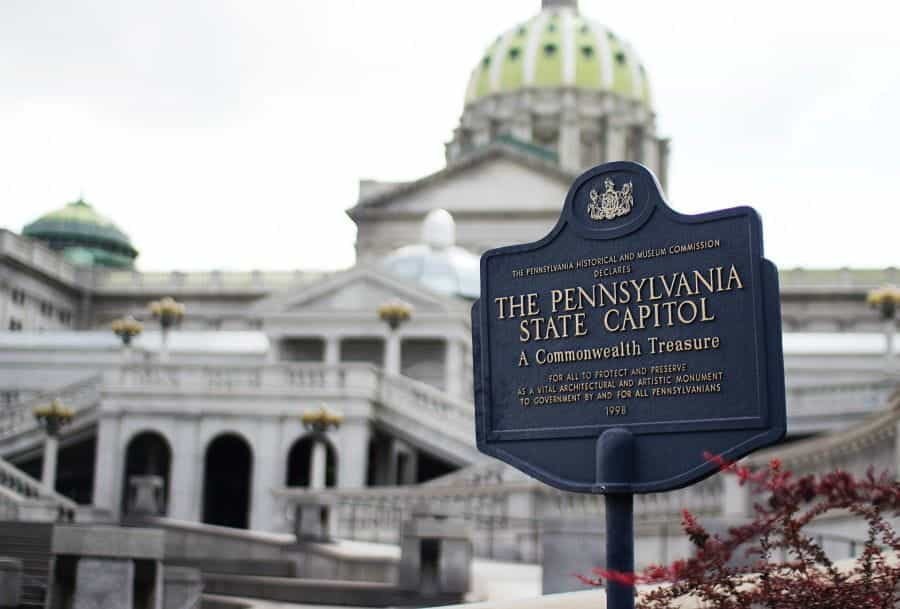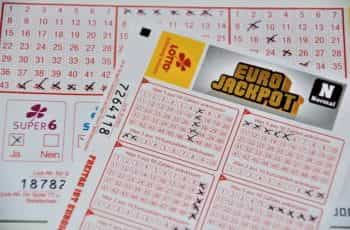iLottery Revenue Soars for Pennsylvania Lottery
Since the onset of the coronavirus crisis, the Pennsylvania iLottery has seen an exponential increase in revenue, and a massive growth of new players. The Pennsylvania iLottery, a partner of gaming company Scientific Games, branched into the digital realm two years ago and is now seeing the investment pay off — considerably. This year, the Pennsylvania iLottery is expected to top $1 billion in total sales.

Pennsylvania’s lottery has long been lucrative, but its iLottery option has been particularly successful since the coronavirus crisis. ©Katherine McAdoo/Unsplash
The Pennsylvania iLottery: Moving Into the Digital Realm
The decision to build a robust online iteration of the Pennsylvania Lottery was actualized in May 2018, the result of a collaboration between the Pennsylvania Lottery and Las Vegas-based Scientific Games. Pennsylvania’s iLottery is powered by OGS, a content aggregation platform created by Scientific Games.
In the intervening years between the creation of the iLottery and today, the Pennsylvania Lottery worked hard to bolster its presence. Using its newfound connections with Scientific Games, the Pennsylvania Lottery partnered with 500 of Scientific Games’s 9,800 retailers, encouraging lottery participants to consider signing up for the online version.
From May 2018 to May 2019, Pennsylvania’s lottery sales increased as part of the partnership, even in brick-and-mortar lottery locations and with physical scratch cards. In that first year alone, traditional lottery sales increased 7.2%, while Scratch-Off revenue increased, too, by 5.9%.
Pennsylvania Lottery: Already An Example For the Industry
In fact, Pennsylvania’s lottery was always uniquely successful. Prior to the coronavirus pandemic, which has sent enthusiastic bettors inside, the Pennsylvania Lottery had become North America’s most lucrative lottery program with both physical and digital lottery options. Since the coronavirus pandemic, these numbers have only increased.
The iLottery Proves Resilient To The COVID Challenge
Across all sectors of the economy, the ongoing coronavirus pandemic has posed an extremely challenging obstacle. In the gaming sector, this has meant the indefinite shuttering of brick-and-mortar casinos, not to mention any affiliated gambling location, sporting events, bingo halls, or racetracks.
The notion of winning the lottery must be extremely appealing for many iLottery participants, who signed up for Pennsylvania’s iLottery in droves. Since the beginning of the coronavirus crisis, the iLottery has seen an 80% increase in iLottery revenue — and a 200% increase in new players.
During the crisis, Pennsylvania’s iLottery saw $4.2 million in online sales in a single day — a record for the state’s lottery. On average, the iLottery now brings in about $3 million a day. This revenue includes both online and mobile registration, as well as lottery participation, options.
“Our goal in offering our players the option for online/mobile play in May 2018 was simply to meet players where they are, which is online, and it has been exceptionally well-received. During this unprecedented time, we are reminding Lottery players that they have the option to take advantage of playing PA Lottery online games at pailottery.com. This is the only place where PA Lottery players can buy their Powerball and Mega Millions tickets without having to leave their homes. This is also another way people can support older Pennsylvanians during this challenging time.”– Drew Svitko, Executive Director, Pennsylvania Lottery
The Pennsylvania Lottery: An Overview
Pennsylvania’s state lottery was founded in 1971, and sold its first tickets under the leadership of Henry Kaplan in 1972. The lottery is run out of its headquarters in Middletown, Pennsylvania, and is currently overseen by executive director Drew Svitko, as well as Jim Sawyer (acting security director) and Ewa Dworakowski (press secretary).
According to Pennsylvania law, at least 40% of the income generated through lottery play should be allocated as prize money, while at least 27% goes to funding social programs. As of right now, the lottery meets and exceeds these requirements, with 60.9% of revenue paid as prizes and 29.9% going to social programs.
The iLottery Follows the iGaming Model
Pennsylvania’s iLottery offers a vast number of games. Its most traditional draw options are the Powerball and the Mega Millions, which offer familiar IRL iterations with scratch cards and lottery tickets, as well as the familiar lucky power balls recited in a particular order. Following the model of iGaming and virtual slots, the Pennsylvania iLottery includes a vast number of iGaming options with cash prizes, including titles like James Bond 007, Medieval Match, Jungle Tumble, Gold Fish, Volcano!, Ca$hbuster Extreme, Crossword Cash, and more.
Scientific Games Is Staying In the Lottery Business
Perhaps inspired by the definitive success of the collaboration between Scientific Games and the Pennsylvania Lottery, Nevada-based Scientific Games recently announced that it had renewed a ten-year contract to operate the Iowa state lottery. Prior to this, Scientific Games had operated Iowa’s lottery for a preceding 18 years.
Online Lotteries in the US: Legal on a State-by-State Basis
As of May 2020, there is no comprehensive federal legislation which makes it legal across the board for all 50 states in the US to legalize online lottery options. In fact, only 13 of the 46 existing US lotteries legally allow for an iLottery option — though it’s quite likely that, with the success of Pennsylvania’s iLottery, this may change in the near future.
Pennsylvania Isn’t The Only State Seeing Success
While Pennsylvania is the leader in North America for iLottery revenue, Michigan’s state lottery also found great success in the 2019 fiscal year for its iLottery option. The year saw an all-time record for online ticket sales, demonstrating that the industry is strong, even in non-coronavirus times.



